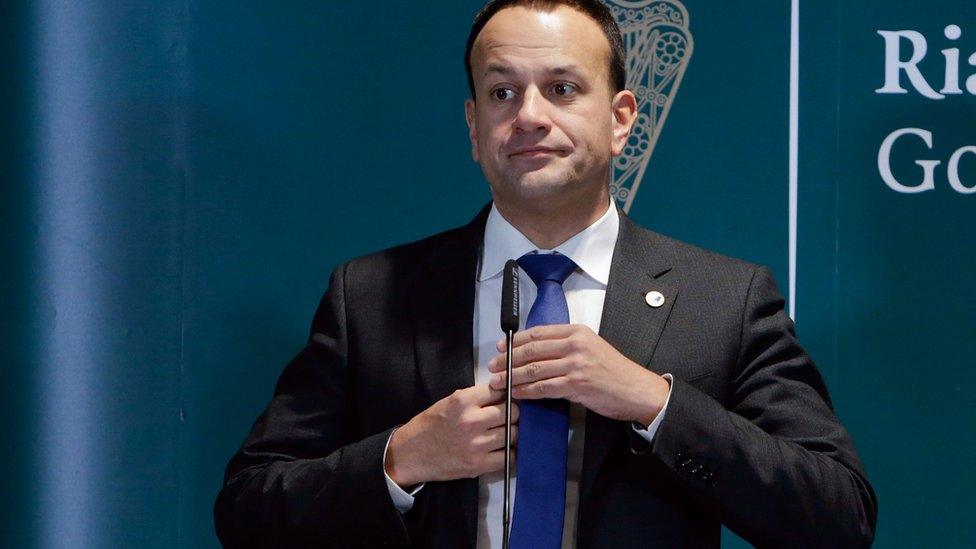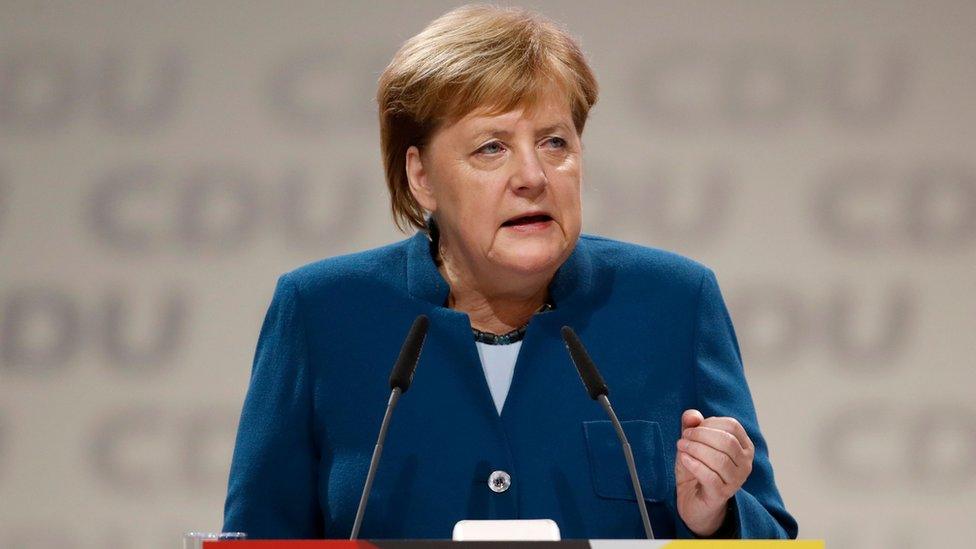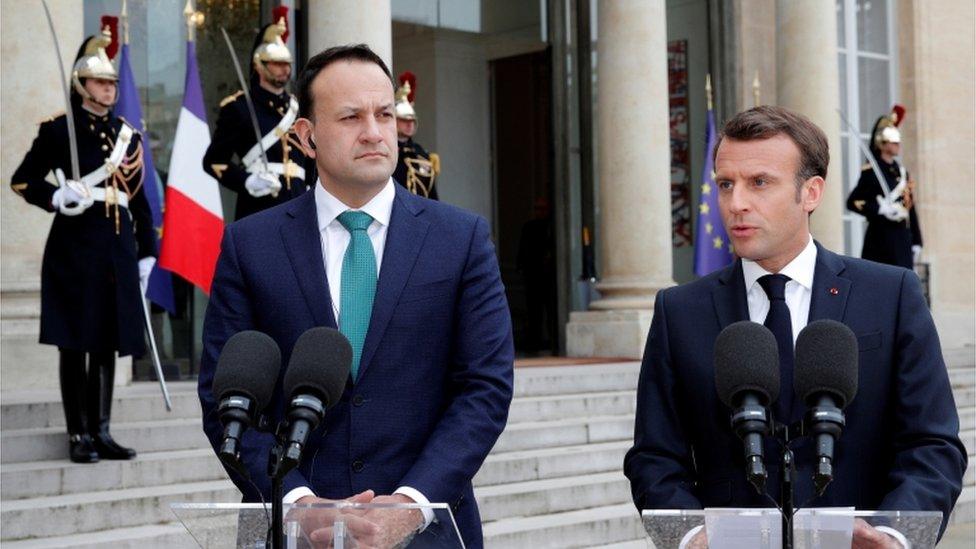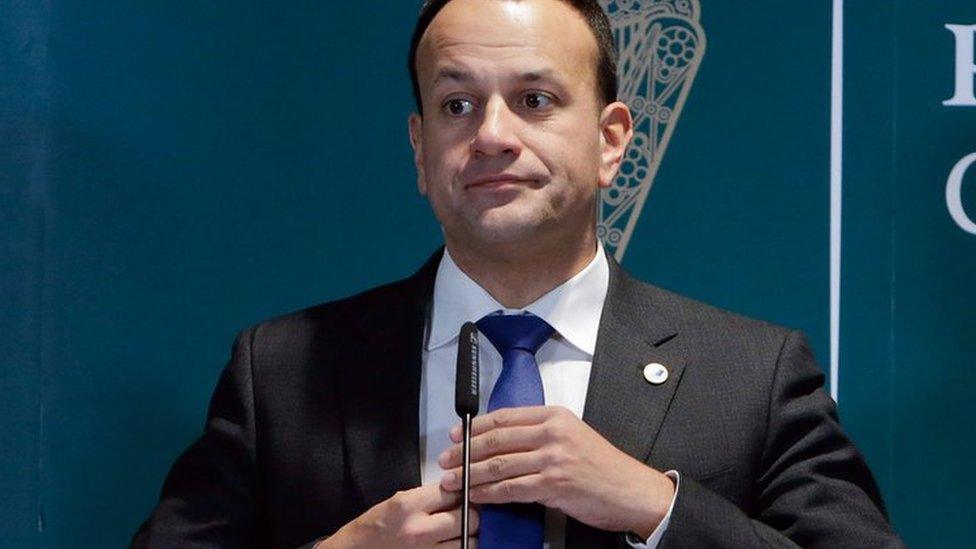Brexit: Good Friday Agreement 'hard to protect' in a no deal
- Published

It will be difficult to protect both the Good Friday Agreement and the European single market in a no-deal Brexit, Leo Varadkar has said.
The taoiseach (Irish prime minister) said the Republic of Ireland and the EU will do everything possible to avoid the emergence of a hard border.
He said "reasonable questions" are being asked about the protection of the single market and the customs union.
Mr Varadkar described this as the basis for the Irish economic model.
"We know some things can be done remotely, the collection of tariffs for example," said Mr Varadkar, who is due to meet German Chancellor Angela Merkel in Dublin on Thursday.
"Customs duties can be collected as other taxes are, either online or into tax offices.
"We know how to intercept smuggling, and that will have to be stepped up."

German Chancellor Angel Merkel is due to visit Dublin on Thursday
Mr Varadkar added: "When it comes to animal checks, it's much more difficult.
"Animal checks can only possibly be done physically by vets and it's our view that those should take place at ports, that the island of Ireland should be treated as a whole when it comes to SPS (sanitary and phyto-sanitary) but that would require the cooperation of the UK."
He said the Republic can't allow, for example, chlorinated chicken imported into the UK enter into Northern Ireland, cross the border and then go on into France, Spain or Portugal.
Mr Varadkar, who met French President Emmanuel Macron in Paris on Tuesday, said he was "heartened" by the continuing "enormous French support" for Ireland during the Brexit negotiations.
He also described it as "timely" that Prime Minister Theresa May had reached out to Labour leader Jeremy Corbyn.
But he said he did not know "if Mr Corbyn will rise to the occasion, whether he will show leadership and be able to come up with a compromise plan with Prime Minister May. I hope he does but we will see."

Analysis: John Campbell, BBC News NI business and economics editor
The Taoiseach is getting to the nub of the no-deal border problem.
There is flexibility within the EU's Customs Code which could allow customs formalities and tariff collection to happen away from the border.
But the issue of animals and food products is much more difficult.
The EU has strict rules: if these products are coming into its union they must enter through border inspection posts located "in the immediate vicinity of the point of entry".
That is there in black and white: Council Directive 97/78/EC, external.
Mr Varadkar's answer to this is to ask the UK to carry out these checks on goods as they travel from Great Britain to Northern Ireland.
In effect, the UK would have to agree to partially trigger the backstop.
But if the UK refused to do that - then what?

- Published2 April 2019

- Published22 March 2019
